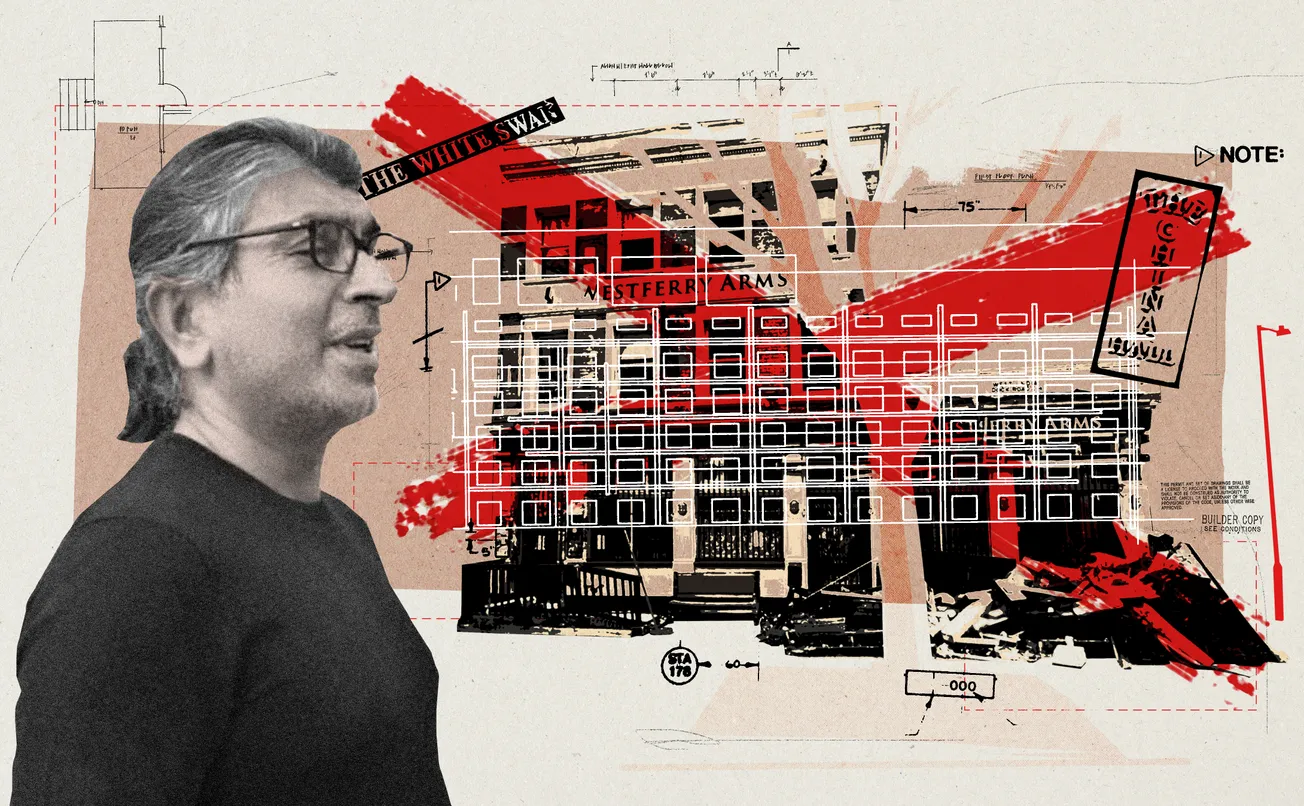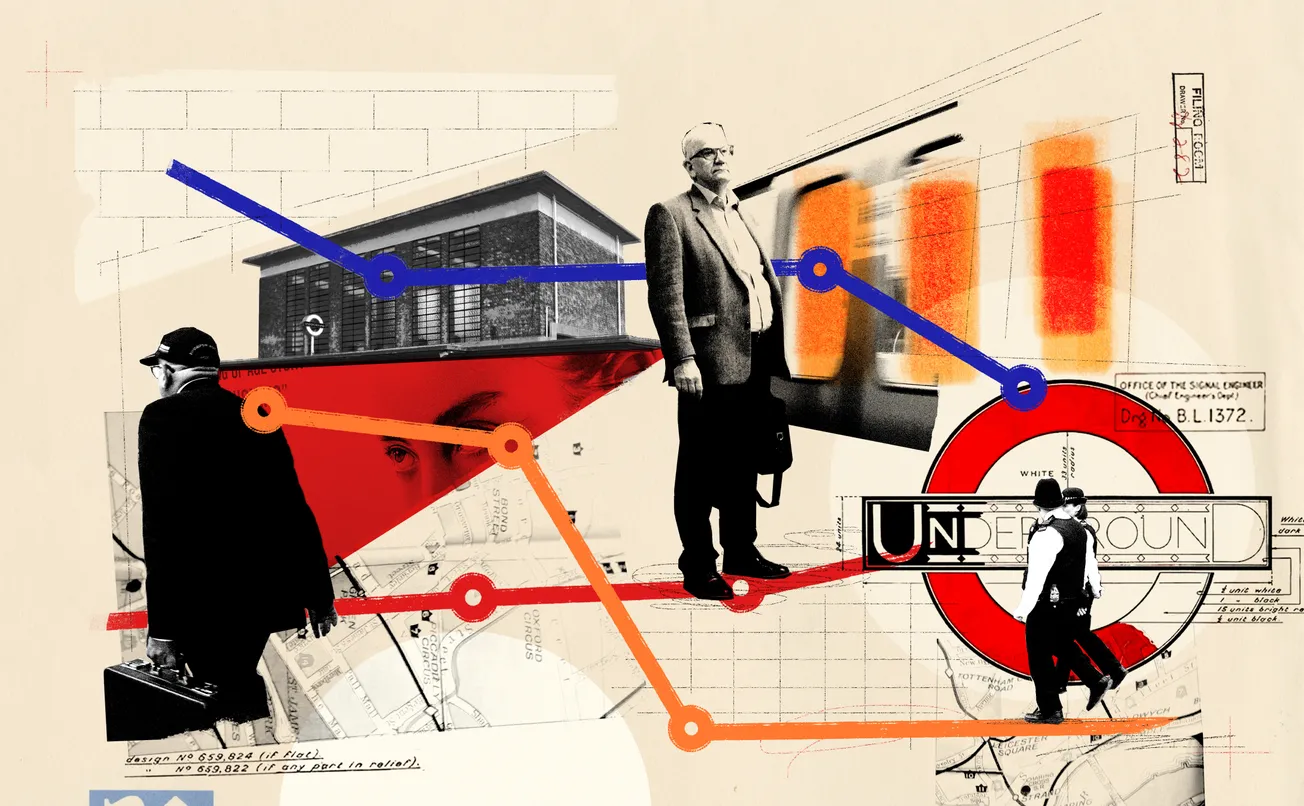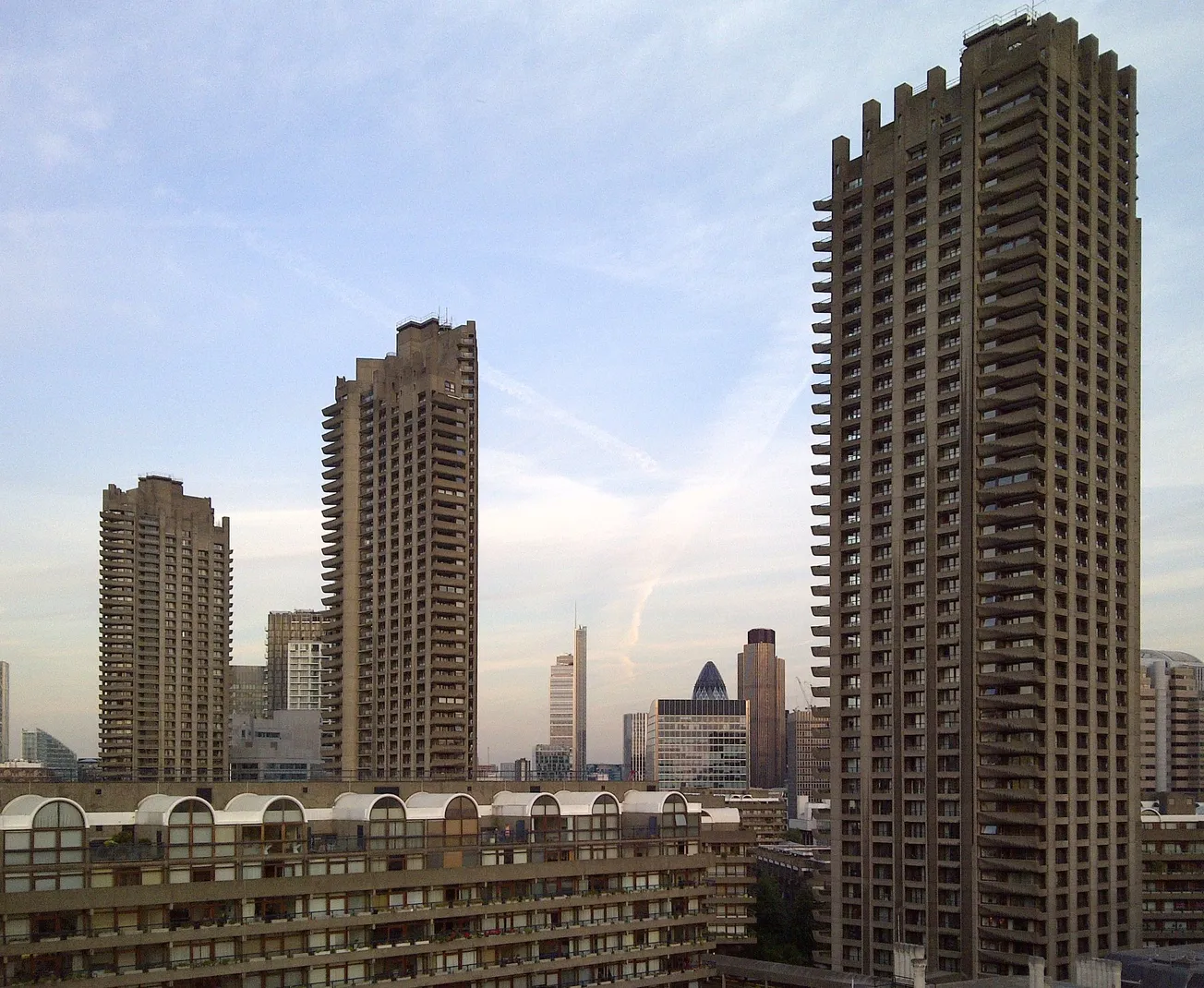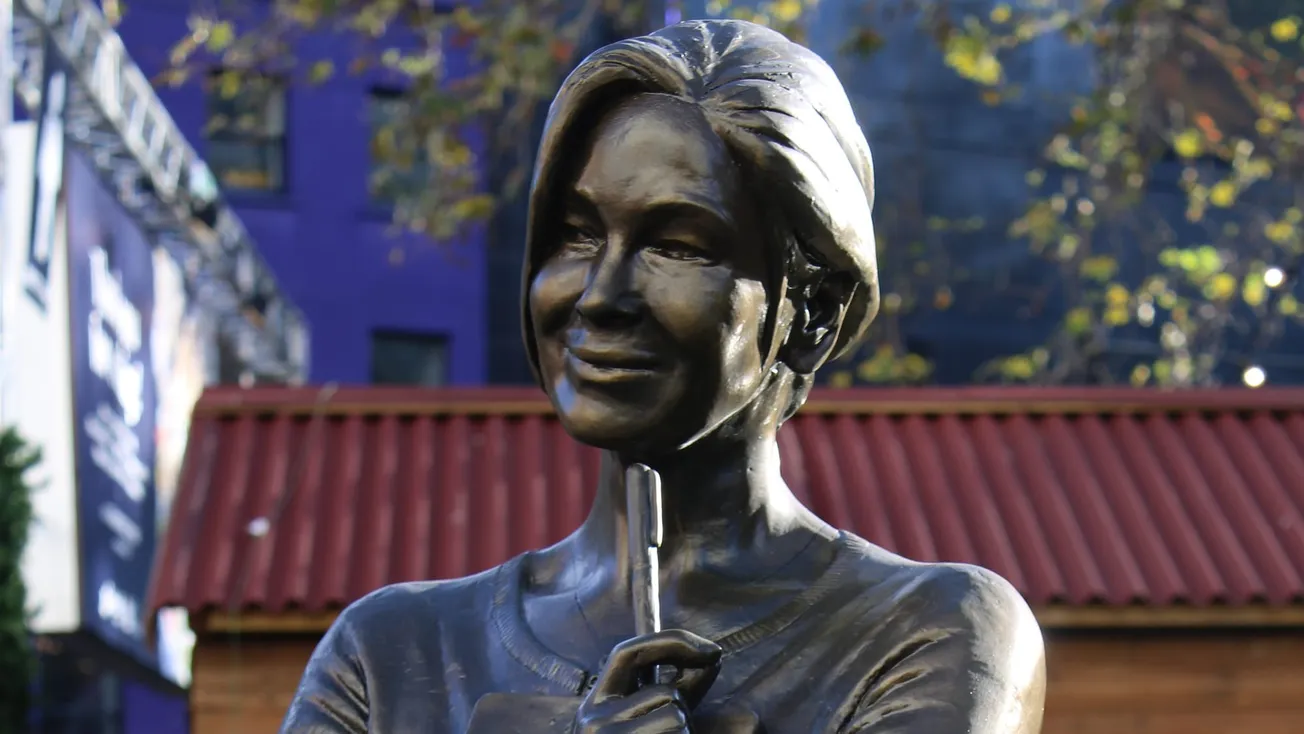Steve Cornish remembers the start of his multi-decade love affair with the China Hall. When he was younger, Bermondsey was its own little breakaway state inside of the capital. It even had its own football league. And every Sunday after the match he would sprint away, often without showering, stopping only to chuck his boots into a Tesco bag, to ensure he got a seat in the China Hall, a Victorian corner pub perched on the edge of Southwark Park.
For Cornish, the unique draw of the China Hall for 35 years came down to one man: Micky Norris, its talismanic landlord. It’s hard to get across the love held for the man without slipping into hagiography. Former staff describe him in almost saintly terms; one even called Norris and his family “the greatest family I’ve ever met” and the pub their “second home”. Norris, I’m told, would spend all day perched around the pub, not drinking, just talking to customers, and every Christmas he’d invite any of them who were going to be alone to spend it with his family in their flat above the wood-panelled, 300-year-old boozer.
I’m reminiscing with Cornish, who’s so entrenched in the area that he’s known as “Mr Rotherhithe”, because of what happened next. As he recalls the saga, he’s flanked by another long-time pub regular, Michael Robertson, who has shoulder length white hair and a white beard nearly as long as the pastel linen jacket he’s wearing.

In 2017, the China Hall got a new owner: a mysterious property company based in the tax haven Isle of Man called Hamna Wakaf. The new owners made clear to Norris that they would only renew the pub’s lease if the family paid twice their rent. Failing that, they’d redevelop the site. Norris spent every penny he could on lawyers, begging Hamna Wakaf to save the pub and community he’d spent his life building. It was little use. They were to be evicted from their flat above the pub on Christmas Eve 2018. They would have been left homeless, were it not for a last minute intervention by a local MP that got them first a delay to their eviction and then a new home in Camberwell.
With Norris’ ousting, they had ripped the pub’s heart out. Next, they came for the body. Locals like Cornish and Robertson, who led the China Hall Local Community Group, watched as Hamna Wakaf slowly gutted the pub over the ensuing years. Council inspectors arrived in January 2022 to find the bar removed, the beer lines cut, fixtures and fittings stripped out and the space subdivided into two ground floor apartments. They ordered the developer to stop — they hadn’t obtained planning permission. Hamna Wakaf resisted, pushing for retrospective permission and arguing it was now no longer viable as a pub. But last summer, after years of legal wrangling, appeals and even a public inquiry, the pub campaigners and the council won: the China Hall was ordered to remain as a pub.
But it was too late for Norris. The fight had taken it out of him, and his health deteriorated rapidly. He died on 22 June 2023, aged 74. Some 250 people turned up to his funeral in Honor Oak.
The name Hamna Wakaf might mean little to many readers. The name of its reported owner, however, is much better known. Multi-billionaire London real estate mogul Asif Aziz, who controls some of London’s most iconic properties, has been making quite the name for himself, described variously as “Mr West End” (Aziz owns everything from souvenir stores to high-end hotels in the West End) and, less generously, “the meanest landlord in Britain”.

Maybe the biggest testament to Aziz’s growing infamy is how often he’s in the news. Many readers will know him from the ongoing situation at the Prince Charles Cinema, where he stands accused of trying to “bully” the cult venue out of its Leicester Square-adjacent home, or perhaps from the time he successfully evicted the world’s first YMCA.
But what about his effect on London’s pub trade? The Londoner has spent days digging into Aziz’s property empire to exclusively unveil a worrying trend. Across the capital, from Feltham and Colliers Wood to Hackney, Camden and Bermondsey, his companies have bought up and then closed pubs in much the same way they did the China Hall. For the first time, we can reveal that at least 29 pubs across London have been closed or redeveloped under the stewardship of companies owned by Aziz. The vast majority never reopened, with the buildings being left an empty husk or changed into flats.
Enjoying this edition? You can get two totally free editions of The Londoner every week by signing up to our regular mailing list. Just click the button below. No cost. Just old school local journalism.
A pattern of pub closures
The Londoner started looking into Aziz several months ago, while talking to a source from CAMRA for a piece about how arbitrary and spurious noise complaints have shuttered or hobbled dozens of the capital’s finest drinking spots. At the end of the call, our source mentioned in passing how we should be writing about Aziz, the man whose companies are redeveloping so many of London’s pubs.
Aziz himself is as mysterious as his property empire; no-one really knows the full story of his meteoric rise to become one of London’s most powerful landowners. According to a 2011 House of Commons speech by Mitcham and Morden MP Siobhan McDonagh, “[Aziz] was born in Malawi and his fortune is thought to have been made in Angola. Aged 16, he is said to have turned up in London one day, out of nowhere, to buy property in an auction. He has been accumulating more and more property ever since.”
The problem with reporting on Aziz is knowing where to start. It’s hard to actually get across the scale of his property empire — no-one is quite sure of the exact value, but it’s certainly in the billions. When we looked into it, we found companies connected to the billionaire owning properties everywhere from iconic central London streets like Jermyn Street and the Edgeware Road to the Dalston McDonalds, the Windmill music venue in Brixton and the land surrounding Tooting Market.
Our insider at CAMRA claimed that firms linked to Aziz would buy up pubs from the chains or companies that owned them, and then all too frequently evict the pub landlords, often with huge rent hikes. Then the venues would be left unoccupied for months or years, until those companies would make the case to the council that it was impossible to be revived, at which point it could be cleared for demolition or redevelopment into flats. This is what was tried, but failed, with the China Hall. In other cases, they would buy already empty pubs to redevelop them or replace longstanding pubs with other businesses.
The problem we faced was this: despite him claiming at one point to own 180 pubs across the capital, the messy empire of mostly offshore development companies linked to Aziz is near impossible to map, let alone track the operations of. There are no lists of the pubs he owns, or even the companies he controls. In the past, reporters have had to pay for corporate records from the Isle of Man just to confirm Aziz’s links to certain companies.

As a result, only a small number of pub closures have previously been linked to Aziz. But today, we can reveal that number is at least 29. It started with tip offs about several pubs from CAMRA campaigners across London who have been fighting redevelopment by these firms for years and reading through hundreds of articles about pub closures to see if any mentioned firms linked to Aziz. After that we searched through documents related to the sale of 11 pubs by a chain called Punch Taverns to a firm linked to Aziz — that gave us a handful more names. But more than anything else, our answers came when we manually searched the name of every company we could find linked to Aziz into the planning application archives of every one of London’s 33 local authorities. We then crosschecked the often dozens of addresses that came up with archived Google maps data to see if any had once been pubs, and from there tried to find estimates for the date of their closure and the cause. The whole process took days of uninterrupted work. Our figure is almost certainly an underestimate.
“Asif Aziz is a wily property speculator who has been building up a portfolio of London sites in the knowledge that their value for potential residential development can only increase the longer he holds on to them,” explains Geoff Strawbridge, secretary of the Greater London branch of Campaign for Real Ale (CAMRA), which campaigns to save the capital’s pubs from redevelopment.
Some of the 29 pubs we were able to identify were part of chains like Wetherspoon’s, but the vast majority were independent free houses — many had spent decades slowly becoming community institutions before their closure. They included: the Flora in Kilburn, the Beehive in Stockwell, the Westferry Arms in Docklands, the Crown in Morden and Two8Six, the only gay pub in Lewisham at the time. One of them — the Surprise at Pimlico — was just a short walk from the Londoner’s offices.
Of the 29 total, 21 were still closed — either empty or replaced usually with housing or, in some cases, restaurants. Another three shuttered, but were eventually replaced by a new bar or pub. A further five eventually reopened, often after a spirited community campaign to keep the pub alive.
Between 2014 and 2024, the capital lost a net total of 90 pubs. While that net figure will include a large amount of churn — pubs closing only for others to reopen elsewhere — it suggests the lost pubs owned by companies linked to Aziz make up a meaningful proportion of the pubs lost in the capital over the last decade.
Many of those lost pubs have stories just as painful as the China Hall. Take the story of Dennis Murphy. By 2013, Murphy had spent two decades as the live-in publican of the Sovereign, one of Camden’s historic Irish pubs, when he was told his rent was set to double. It turned out his property had been sold to Golfrate, another firm linked to Aziz. Despite signing a 30-year lease just 13 years earlier, a minor clerical error that meant the building wasn’t listed properly with the Land Registry allowed Golfrate to void that lease and offer another, at a much higher rate. In the end, the 68-year-old was forced to squat in his own shuttered pub, with the developer threatening to turf him out with an eviction order.
“Now I do not know what morning they are going to come and turf me out. These companies just buy up pubs and get the people out. And that is it,” Murphy said at the time. “Some of the old boys would come in every day, and they will have no place to go now.” Murphy himself eventually had to find new housing with the aid of the council and a charity.

“Pubs are more than just businesses – they are a vital part of the social fabric of communities up and down the country,” Charlotte Nichols, MP and chair of Westminster’s all-party parliamentary group on pubs. “That’s why it is so incredibly damaging when individuals or businesses set out to close and convert pubs into flats or shops purely in pursuit of profit, depriving local people of a vital community facility in the process.”
“Can we ever win the war?”
So what does Aziz have to say about this? In short, it’s difficult to know. For the past week, I have been trying — through every avenue possible — to get a comment from his main company, Criterion Capital. My first email was sent on Tuesday, with a deadline of Thursday. Since then, I have sent several follow-ups to numerous members of staff, to no response. I even called the company seven times: at first, I was told that the head of communications was on annual leave, and that the company’s legal director would respond shortly. After no such reply came, I asked to be put straight through to his office, only to be informed that he was on his way in or in meetings.
On Friday morning, I was told first that he was on call, and then that he too was on annual leave and uncontactable. All attempts to speak to somebody else in the legal team were rebuffed, and the receptionist finally said that no-one at the development giant was around to respond to us. Then, she simply hung up. Undeterred, I even delivered a request for comment in person to Criteron’s offices. When I explained who I was and why I was there, the person at the front desk responded: “oh yeah, you”. This also went unanswered.
Robertson and Cornish hardly mince their words when talking about Aziz. “He's a serial pub killer… He's a danger to urban life as we know it,” claims Robertson. The China Hall isn’t their only battle with Aziz. While fighting over its future, the duo were also leading the campaign to save the Old Justice, a historic Bermondsey pub shuttered in 2017 by Hamna Wakaf. There too, the pub’s listed interior was stripped by the developer without prior permission in an unlawful attempt to convert the building into housing, with the council once again forced to intervene. But it reopened in 2023 after six years being shut and has turned into a thriving, affordable community pub.
Robertson starts telling me about how he hopes the same thing could happen for the China Hall, only for Cornish to cut across. “Maybe Millwall will be in the premiership too,” he mutters, his gallows humour an attempt to cut off the early shoots of hope before they grow too tall. The duo admit it feels like fighting a rising tide sometimes; that there’s a dozen losses for every victory against developers. “It’s great to win small battles”, admits Robertson. “But can we ever win the war?”
If you enjoyed Andrew's story and want to get sent similar investigations on the city's future, why not join up as a Londoner member today? This means you'll get weekend longreads like our piece on the strange death of east London's radical bookshop and Monday briefings like our comprehensive analysis of the wet-wipe island in the Thames delivered straight to your inbox.
No ads, no gimmicks: just click the button below and get two high-quality pieces of local journalism each week, all for free.

Comments
How to comment:
If you are already a member,
click here to sign in
and leave a comment.
If you aren't a member,
sign up here
to be able to leave a comment.
To add your photo, click here to create a profile on Gravatar.






